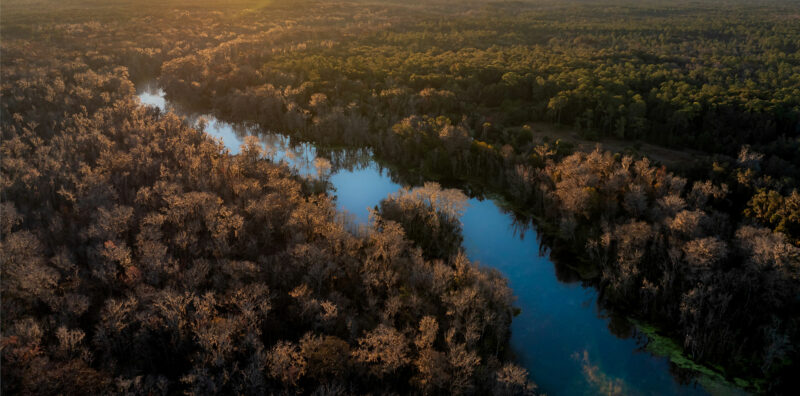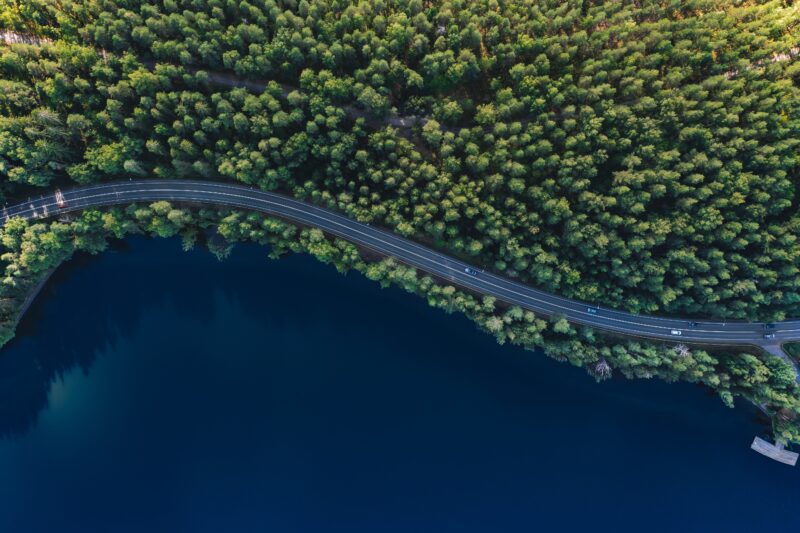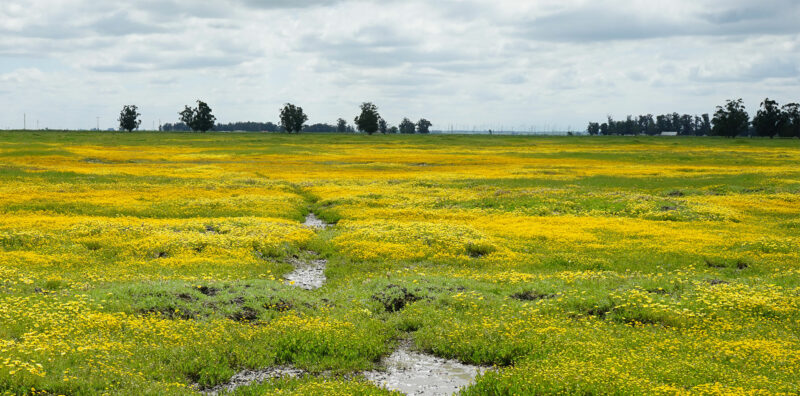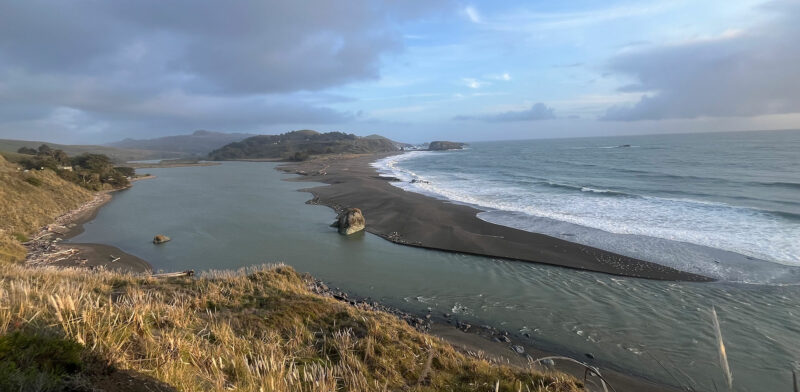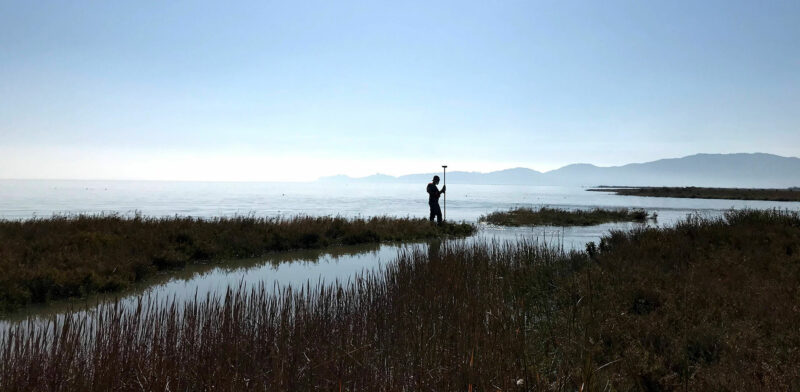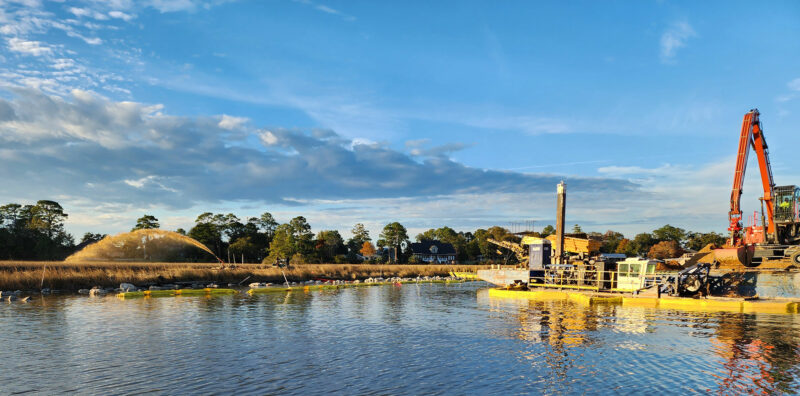To protect critical ecosystems and water supplies amid growing climate and regulatory pressures, ESA partners...
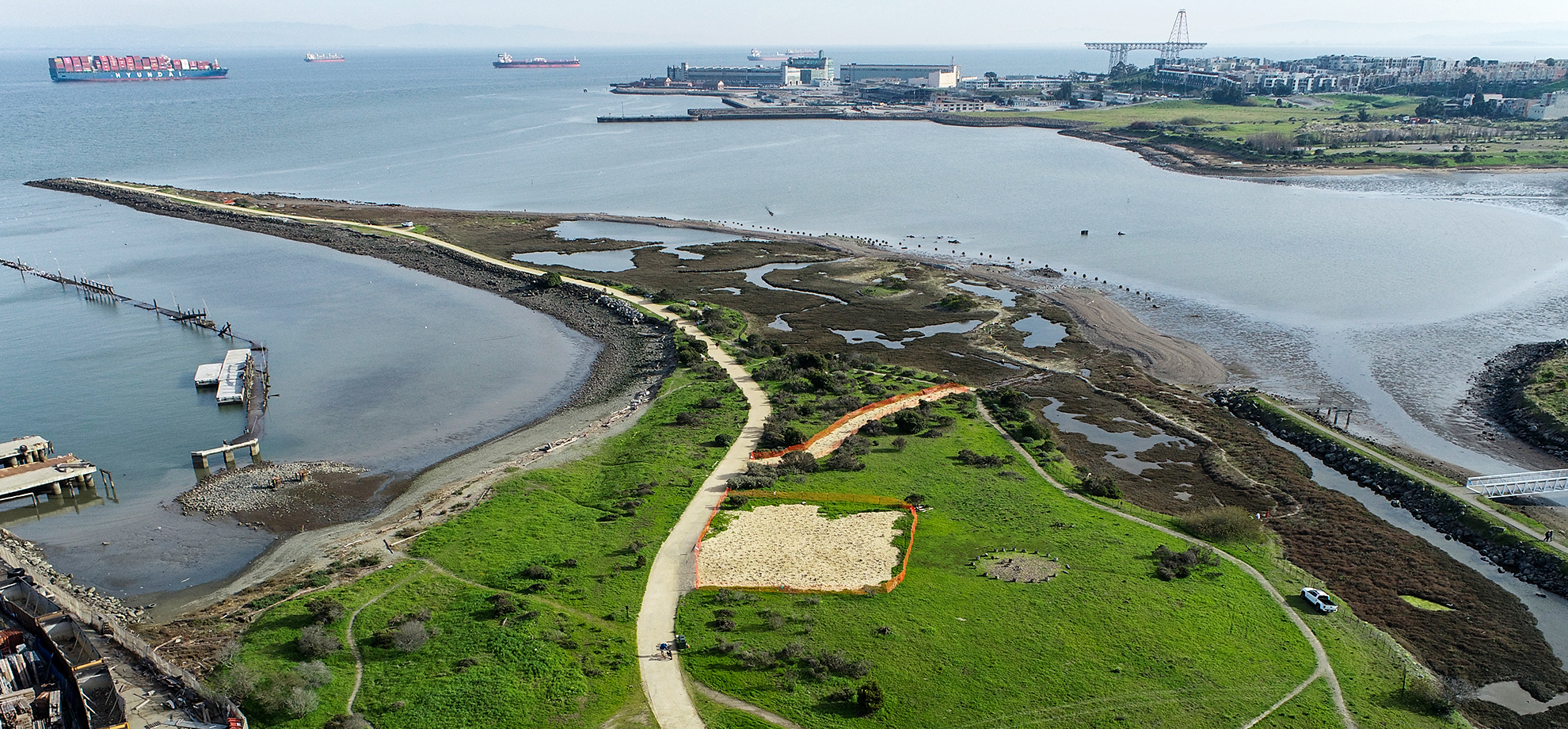
Heron’s Head Park Shoreline Resilience Project
Located at a beloved urban shoreline park on the southern San Francisco waterfront, the Heron’s Head Shoreline Resiliency Project demonstrates a nature-based approach to shoreline erosion management that preserves tidal ponds and marsh habitats, protects recreational access, and improves sea-level rise resilience.
Why does this project matter?
ESA’s restoration design was anchored around the creation of a 1,600-foot-long coarse gravel beach to resist wave-driven shoreline erosion, and also featured nearshore oyster reefs, rocky headlands, wood habitat structures, and native planting. The site is now home to or visited by over 100 species of migratory and resident birds, two endangered species, and enjoyed by thousands of San Francisco Bay Area residents annually.
What is ESA doing to help?
The Heron’s Head Park Shoreline Resilience Project is located within the 21-acre Heron’s Head Park in San Francisco, California. The urban park features seven acres of tidal marsh and ponds, and 14 acres of public open space. The park and its greenspace offer wildlife and the community, a necessary refuge in this dense urban environment. Before restoration occurred, the shoreline within the park was experiencing subsidence, erosion from wind-waves and boat wakes, and in the most impacted area, erosion had caused the shoreline to retreat by up to 50 feet since 1999 (~2.5ft/year)—threatening valuable tidal marsh and tidal pond habitats.
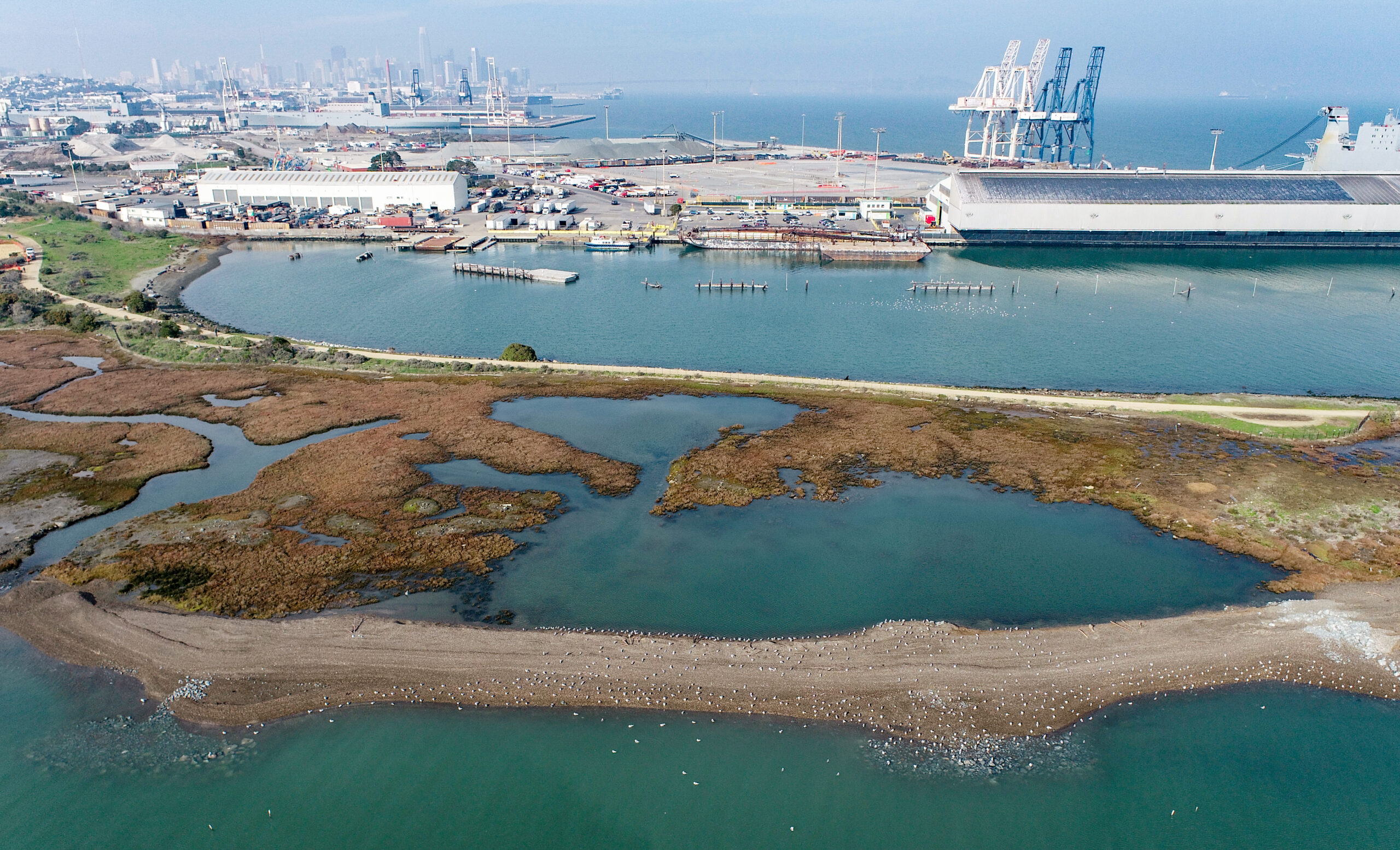
ESA was hired by the Port of San Francisco to design and implement a nature-based solution to amend the progressive shoreline erosion, compatible with the ecological setting. ESA biologists and engineers collaborated on a design that utilizes a course gravel beach, engineered to be resilient against waves and sea-level rise through 2050. The design also supports sensitive marine ecology including the endangered California Seablite (Suaeda californica). The project planning, design and construction was possible because of dedicated collaboration between technical experts, community organizations, and public agencies. The project is now seen as a case study to highlight the challenges and opportunities to applying other nature-based shoreline protection and habitat enhancement projects within California.
Connect with our team
“I wanted to take this milestone moment in the [Heron’s Head Park Shoreline Resilience Project] to thank you for your excellent engineering, tenacity, patience, and knowledge that got us to this point. Only 10 more years to go!"
Details
Client Port of San Francisco
Location San Francisco, California
Services
Restoration
Coastal Restoration
Wetland Restoration
Natural Resources
Coastal Zone Engineering & Management
Hydrology, Hydraulics & Geomorphology
Environmental Review & Documentation
California Environmental Quality Act (CEQA)
Cultural & Historic Resources
Climate Change & Resilience
Climate Change Adaptation
Sea Level Rise and Coastal Hazards
Biological Resources
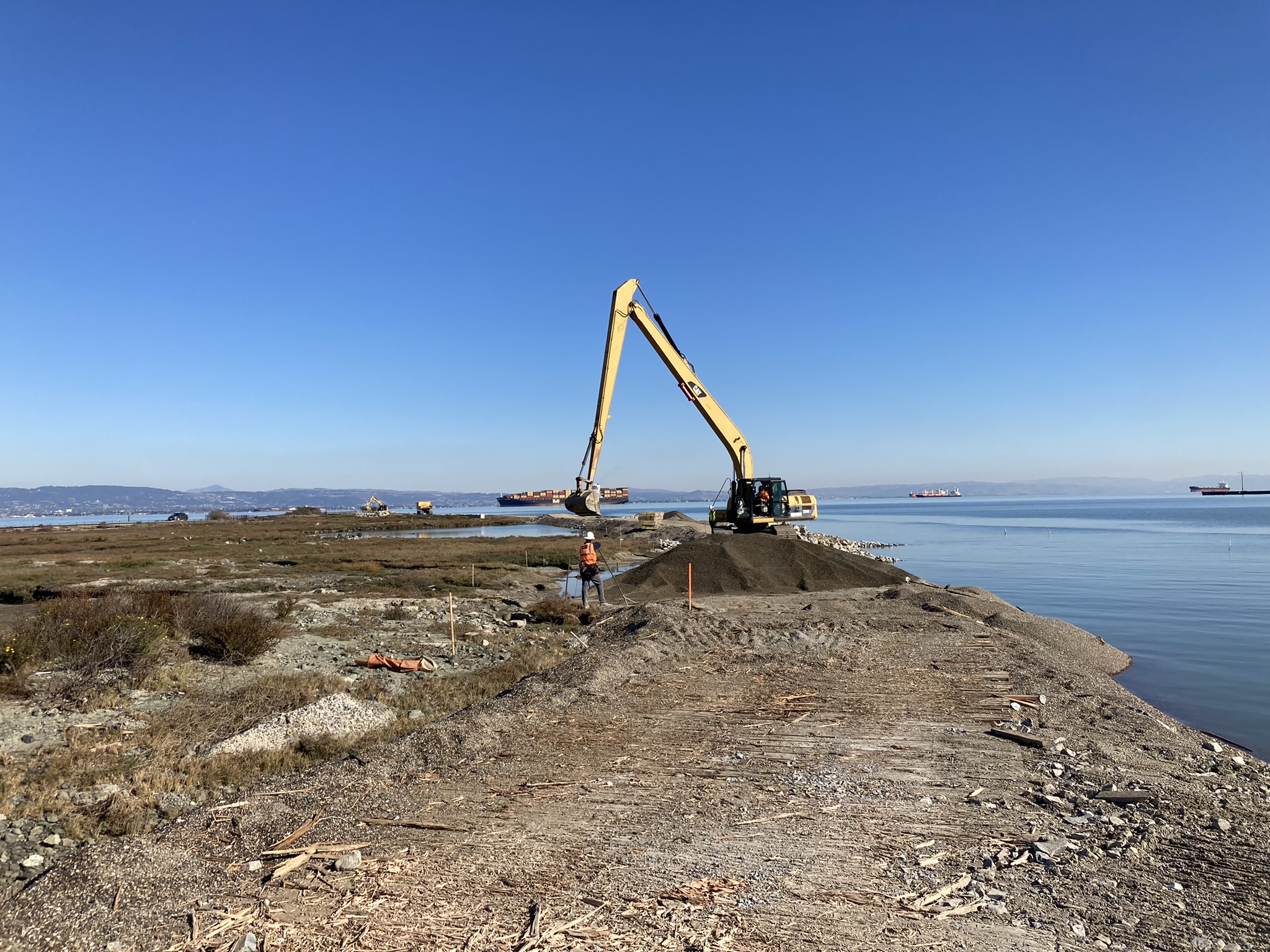
News & Ideas
Coastal habitats like seagrass meadows, salt marshes, and mangrove forests are among our planet’s most...
ESA is once again a proud sponsor for this year’s Environmental Markets Conference in Seattle,...
ESA is pleased to sponsor, present, and attend this year’s 42nd Annual Salmonid Restoration Conference...
ESA is excited to sponsor, present, and attend this year’s Annual Conference of the California...
On April 20, 2010, BP’s offshore oil-drilling rig, the Deepwater Horizon, exploded and sank 41...

